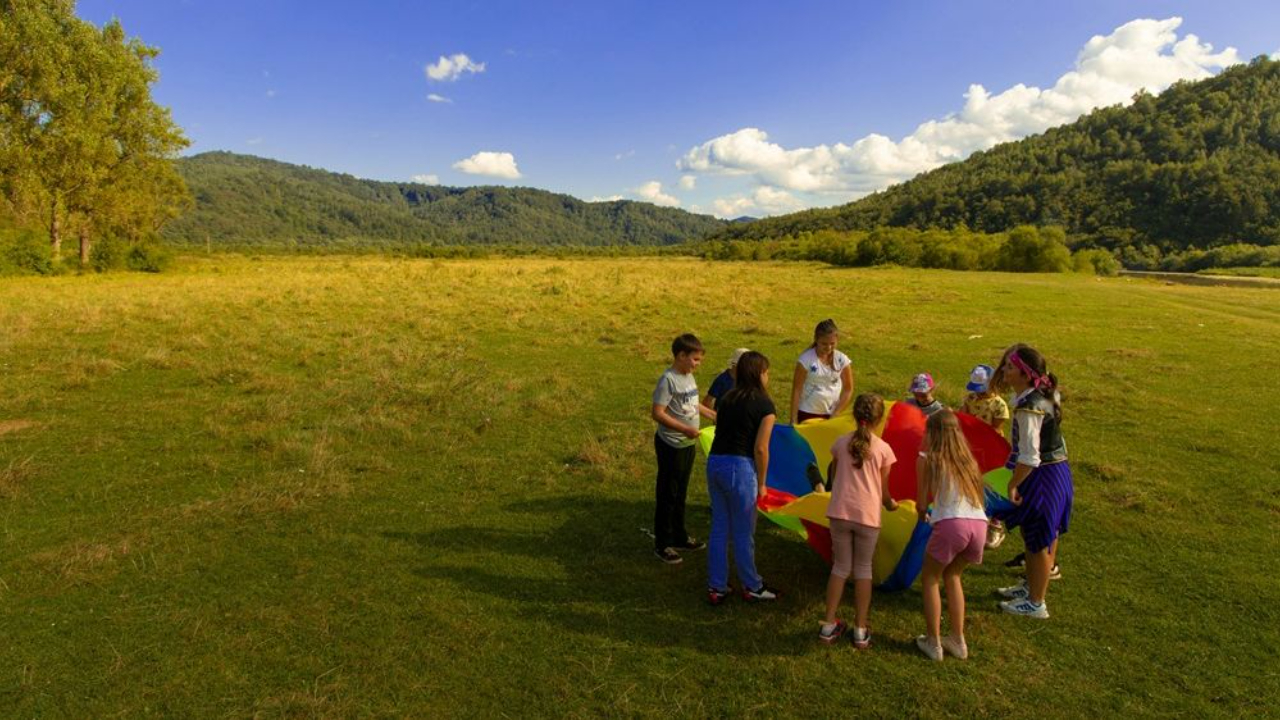The Illusion of Inclusion: Shifting the Narrative for our Deaf Kids
Feb 17, 2025
It can be an incredibly confusing and foggy journey for new parents of deaf and hard of hearing kids. And actually, I'm not even talking about the myriad of feelings that come to the surface after finding out our child is deaf. Don't get me wrong - that's a very vulnerable and challenging time and even I wasn't immune to the tidal wave that hit me when we were given the news.
However, there's something I would argue that is worse than the emotional rollercoaster we experience.. and that is the conflicting and unknowingly damaging advice we receive from so called "experts" in the field.
To put it bluntly (you probably know by now, I'm not one to sugarcoat!)...
There are unfortunately a lot of specialists and professionals out there claiming to be "deaf and hard of hearing experts" who are simultaneously regurgitating archaic advice that is directly detrimental to the future development of deaf and hard of hearing kids. Go figure!
This advice (which I'll get to in a moment!) sadly allows and perpetuates the convenience of exclusion to continue in wider society, while also placing all responsibility and onus on the DHH child to "assimilate" into a hearing world.
Look - this may seem like a big call to make, but after working in deaf education for over a decade and raising my own deaf son for the past 3 years - you start to notice these things! A lot of things.
Let me dissect this further:
Why "What an Inspiration!" is part of the problem...
Ableism ( discrimination in favour of people without barriers or a disability) manifests when deaf people are labeled as "inspiring" for navigating a system that is designed to exclude them. If you really took a look at our world as it currently stands, what deaf and hard of hearing kids can ACTUALLY access on the same basis as their hearing peers - is tiny!
This is because MOST people in society acquire language through a spoken modality (given this is naturally accessible to them) and therefore MOST of what is offered in that society is via the auditory pathway - a pathway, that for many of our kids, is either partially or fully inaccessible to them.
Yet instead of raising the bar and pushing the envelope towards better access and inclusion for our kids, specialists and professionals continue to fear-monger families by stressing the need for their deaf child to speak and listen if they are to be "successful" and "included" in society.
As you can imagine, this not only contributes to the harsh and misleading assumptions around deafness, but actually deters families from including signed language in their deaf child's intervention plan which then leads many of these children to suffer irreversible language deprivation.
Specialists also often assure families that their deaf child will "hear and speak" like a hearing child and that "no one will even know they are deaf". But there are a few huge problems with these statements:
-
Unpredictable Development: Predicting exact future outcomes in DHH development, especially relying on a single artificial pathway for language, is impossible. Numerous factors contribute to a deaf child's ability to listen and speak, many of which are beyond parental control. By imposing unrealistic expectations, we hinder the child's holistic development.
-
Identity and Self-Concept: Encouraging families to dismiss or ignore their child's deafness perpetuates the idea that being deaf is inherently wrong. This approach denies the child the right to embrace their identity and build a positive self-concept. True inclusion requires acknowledging and celebrating differences rather than attempting to fit into a predetermined mould.
-
Communication Responsibility: Placing all communication responsibility on the deaf child without requiring effort from others reinforces systemic expectations. To create genuine access and inclusion, societal attitudes must evolve, demanding the recognition and integration of signed languages.
Demanding Change: To break free from ableism in DHH intervention, we must demand and make visible the need for signed languages in wider society. By raising the bar for true access and inclusion, we can ensure that DHH children are not only supported but also celebrated for their unique identities.
Conclusion: It is time to challenge the status quo and dismantle the ableism embedded in outdated advice surrounding deaf intervention. True inclusion requires a shift in societal attitudes, advocating for the recognition and incorporation of signed languages to empower and uplift deaf and hard of hearing individuals.
Clare x
Want to Go Deeper?
Here are your options.
A self-paced, 4-week course for hearing parents of deaf and hard of hearing kids. Build your bilingual foundation, get clear on your goals and learn to advocate with confidence, without the overwhelm - in just 30 days!
👉 RB CLUB – The only online parent community you'll ever need. Your go-to membership for expert support, real strategies, and a thriving parent community. Get the ongoing guidance you need, when you need it!
👉 RB LIBRARY – A growing collection of on-demand workshops, webinars, and resources to support your journey at your own pace - Coming Soon!
👉 Live Workshops & Trainings – Tailored sessions for early learning centres, schools, and extended families supporting a deaf child. Individually designed to align with YOUR child and YOUR journey - and packed with practical strategies and insights.
Book a childcare or school training.
📩 Need help choosing the right option? DM me or email [email protected] (always here to help!)
Clare x
Join the Raising Bilinguals mailing list!
Grab freebies, learn more about deaf and hard of hearing development and stay up to date on the latest info! (We promise no boring bits allowed!)
We hate SPAM. We will never sell your information, for any reason.

